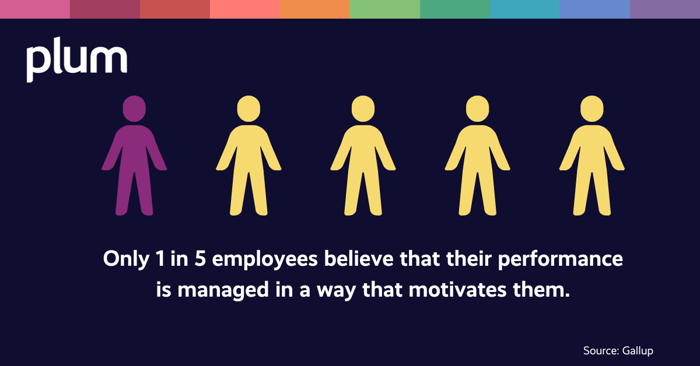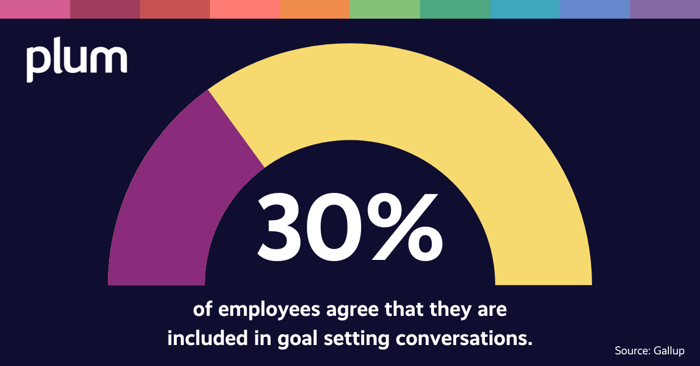Employee assessments are powerful tools that enable companies to identify the drivers and drainers of talent within their workforce while aligning employee skills with organizational goals. These assessments are crucial to refining recruitment processes, boosting employee development, and effectively executing strategic workforce planning.
However, dissatisfaction with employee assessments is pervasive, with only 1 in 5 employees believing that their performance is managed in a way that motivates them.
Effective talent management is necessary to survive today’s fast-paced market, and understanding how to leverage employee assessments is critical to long-term success.
Pin-Pointing Soft Skill Alignment
A common misconception is that talent management begins when employees walk through the door. In reality, it starts before a candidate has even made the decision to join your organization. The recruitment process offers candidates their first glimpse into life at your company. It sets the stage for attracting people whose soft skills align seamlessly with a role's demands and who are ready to commit to your organization's long-term success.

However, traditional hiring methods rely heavily on resumes and interviews, which provide only a superficial understanding of a candidate's potential. After all, how can you get a sense of a candidate's decision-making abilities or adaptation skills from an 8.5 x 11 sheet of paper?
That's where employee assessments come into play. These assessments can surface insights that are impossible to glean from a resume or interview alone. When used with a structured interview process, employee assessments help get to the heart of a candidate's personality and motivations, measure their problem-solving ability and social intelligence, and determine which behaviors will lead to feelings of fulfillment or drive burnout.
By evaluating this data against specific role requirements and organizational needs, companies can make more informed hiring decisions that go beyond the basics, ensuring a better job fit from the start.
Layering in Hard Skills
Although a candidate's soft skills are critical to their success within a role, there's more to the story. You wouldn't hire a CFO who didn't know Excel, no matter how well aligned they were with the needs of the job. Similarly, using employee assessments to understand a candidate's soft skills doesn't provide a complete picture. Hard skills must be layered on top to ensure a candidate has the innate abilities and the required expertise to succeed in a role.
That said, unlike soft skills, hard skills can often be easily taught. Suppose an attractive candidate has all the right behavioral skills to flourish within a role. In that case, the absence of a hard skill or two shouldn't dissuade you from hiring them. In fact, it could be beneficial to their long-term fulfillment and retention.
A study by McKinsey & Company found that companies that focus on creating continuous employee development have an edge in performance and rank among the most profitable in the industry, particularly in times of economic downturn. Additionally, the 2024 OC Tanner Global Culture Report found that the number one way in which companies strive to improve retention is by investing in learning opportunities.
People have an innate desire to learn new things and build upon their skills, and organizations that recognize this are far more likely to have a committed workforce. Employee assessments develop alongside your people, informing their managers of what drives and drains them and allowing them to explore more areas for growth.
Charting a Path for Development
While hiring people who have a strong behavioral fit for a role is important, having an interest in learning the required hard skills is often more critical than possessing them.
Of course, you wouldn't want to hire a candidate who lacks the essential hard skills for the job, but selecting someone with a keen interest in developing specific skills can lead to greater engagement and prolonged commitment to their role. Conversely, hiring a candidate who already knows everything there is to learn in a role will likely lead to rapid disengagement, and they may soon begin searching for new challenges elsewhere.

Involving employees in the process is also crucial. Gallup discovered that employees are 3.6 times more likely to be engaged when their managers include them in goal setting, yet only 30% strongly agree that they are part of these conversations. When hiring a candidate who may need more time to fully meet the hard skill requirements, it's essential to clearly define their learning objectives upfront, ensuring they understand the skills they need to acquire.
Overall, implementing employee assessments enhances your hiring accuracy and fundamentally transforms the landscape of your talent operations. These tools do more than just match candidates to job descriptions—they uncover the deeper, often untapped potential within each candidate, aligning it with the organization's strategic objectives. By focusing on the interplay between soft and hard skills, companies can foster a work environment that encourages continuous growth and learning and is set up to succeed in the ever-evolving business landscape.
Conquering Employee Assessments with PlumThrive
In today's fast-paced market, your organization needs strategies that are not only quick to implement but also highly effective. PlumThrive offers a revolutionary solution that combines psychometric science with advanced analytics to help you enhance your hiring accuracy, boost workforce efficiency, and deeply understand your people's potential from one simple to use platform.
Insights on a candidate's soft skills, hard skills, and interests are layered together to create a comprehensive picture of each applicant. Plum's powerful job-matching technology helps uncover the best fit for every role across your organization while offering resources for growth.
Book time with one of our experts to discover our employee assessment's unrivaled ability to deliver accurate insights for strategic decision-making and transform your organization.